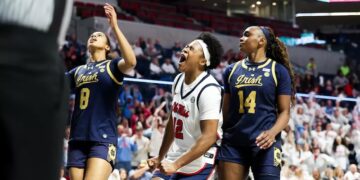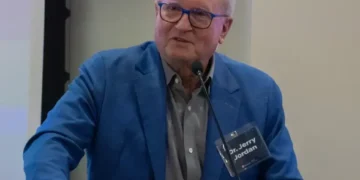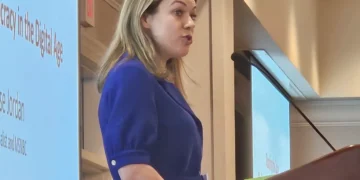
The Free Application for Federal Student Aid will once again be pushed back to an early December release date –– two months later than the typical Oct. 1 date –– due to issues stemming from last year’s cycle.
Last year’s Free Application for Federal Student Aid was delayed until late December 2023, which left a number of University of Mississippi students concerned about the processing of their scholarship money and financial aid packages.
The delays were related to the FAFSA Simplification Act, which was designed to make the process of applying for federal student aid easier by introducing a new streamlined application platform. It also created the new FAFSA Student Aid Index, which is a formula based index number that is used by schools to determine how much aid a student may need.
However, the changes resulted in glitches in the system as well as a delay in the application’s opening.
Laura Diven-Brown, the director of financial aid at the University of Mississippi, explained that federal aid is the largest source of aid for most families at Ole Miss. She said that an estimated half of UM students receive aid and loans every year.
“We wanted to make sure before we sent our first financial aid packages, which were delayed too, that we were checking everything and that we understood the new FAFSA formulas and any changes were accurate,” Laura Diven-Brown said of last year’s application cycle.
Kendal Bankston, a senior psychology major, was among the students whose FAFSA process was delayed. Her FAFSA was not processed and finalized until late spring of 2024.
“It was definitely a long drawn out process for me. It was a nightmare, actually,” Bankston said.
After she was finally able to fill out the application in December, Bankston began receiving error messages in early spring 2024 about her parents’ income information due to her father being self-employed.
Bankston explained that she and her family had to go through a verification process that checked their information and documents, which led to them resubmitting the parental income information section of the application.
Bankston said another reason for the delay on her application was FAFSA changing a section of the application for students who have other siblings that are also attending college. She had to resubmit this section of the application as well.
Bankston contacted FAFSA via email, but these issues were not resolved. She eventually went into the Ole Miss Financial Aid office after receiving more error messages.
“I was extremely worried that all of the information was going to be processed wrong and I wasn’t going to get what I needed from FAFSA. Getting in touch with the company was basically impossible,” Bankston said.
Bankston finally finalized her financial plan when she went to the UM Financial Aid office.
“It is really hard to create a financial plan for families if we do not have the federal application back,” Diven-Brown said.
Due to the FAFSA delays, the Financial Aid Department could not begin processing the data from the applications until February.
“I think everyone was scrambling from the financial aid side, (from) the student and families side to even the Department of Education side, just trying to get all the pieces in place and be able to give people good information. You need information to make a decision,” Diven-Brown said.
Diven-Brown said that families of new and prospective students were trying to make decisions about their college plans without hearing back from FAFSA. She explained that with little-to-no information back from FAFSA, it would be hard to make a decision based on cost.
“The delay of the FAFSA was honestly really nerve wracking,” sophomore biological sciences major Baillie Pettis said “(My parents and I) try to stay on top of it so that we know it’s completed.”
Pettis said she tries to complete her FAFSA application as soon as they open each cycle, but due to the delays, she could not fill it out until the end of December. Her FAFSA was not processed and finalized until June 12, 2024.
Like Bankston, Pettis said that Diven-Brown’s department was helpful in guiding her family through FAFSA issues.
“Although this was a messy situation, it gave us an opportunity to talk to families about what all of their options were. At least we were able to begin to explore costs, expectations and hopes with funding,” Diven-Brown said.
Diven-Brown believes that communication was the most important part of the difficult process.
“Our school really jumped on this when we finally got FAFSA data in February,” Diven-Brown said. “Our office was meeting regularly to make sure everything was correct. But we held firm until we felt more confident with putting the information out for the students.”
According to the U.S. News and World Report, the FAFSA delays have extended to the 2025-2026 academic year, as applications will open as late as Dec. 1. Diven-Brown said that FAFSA might be opening the application for certain “test schools,” which will be able to give instant feedback about the new experience, between October and December..
Diven-Brown believes that if the issues with the FAFSA application are solved, the new application will be an easy experience for students and families.
“The goal is to make this application easy and not a barrier so that people can apply for aid. I’m hoping in the future that happens because this is rockier than we all thought it would be,” Diven-Brown said.
Diven-Brown is hopeful for the process and outcome of the 2025 FAFSA application.
“I’m hoping that we are going to see the delays and errors diminish significantly this time around,” Diven-Brown said. “I don’t believe everything will be fixed, but over the course of the year I think some things will start to come back together.”






































